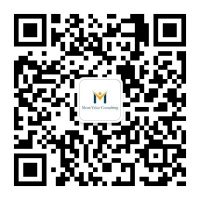8 Resume and/or Cover Letter Mistakes to Avoid
Most students, no matter what their future plans, more or less want to stay on to work or intern. In North America, it is a long way to get a job. Whether it’s a summer internship or a formal job, they can’t be realized without a Prerequisite: a standardized, Professional, well-formed, logical, idiomatic, focused personal job search document. The resume and cover letter are the two most important parts.
Certainly, different major can have different requirement according to specific circumstance. In other words, a well-developed job search Profile is the single most important step on the road to success in North America.
So, what does a qualified resume look like? As a matter of fact, most Chinese overseas students have some misconceptions about job-hunting materials. Failing to ask a Professional to revise your resume and cover letter; One cover letter applied to multiple positions and was completely untargeted; You think you can do everything without grammatical errors. You don’t pay attention to the effective operation of the content and format of your resume. It’s just a list of work experience that mistakenly assumes that more is better than less…
Now, here are some common resume mistakes and how to avoid them:
1. Putting too much emphasis on your job responsibilities and tasks while neglecting your personal accomplishments
A common mistake many students make in their resumes is to simply list their job duties. Employers, on the other hand, place a high value on the results and achievements you have made in your past jobs, and they will evaluate your future career success and positive contributions to the company. Therefore, you need to make sure that you have space in your job description to fully account for your accomplishments. For example, what did you do that went beyond your normal job description? Have you made innovative or improved proposals for existing processes and methods? Have you saved the company costs and expenses? You can make your resume more competitive by picking one of these questions and thinking about it and describing it effectively.
2. No quantifiable data is used as a reference in the job description
Quantifying your personal accomplishments will help your potential employer understand the scope of your work. If you were a hiring manager, would you be interested in writing “planned and coordinated multiple PR events and attracted a large number of new clients” or “planned and coordinated 10 PR events and attracted more than 200 new clients”? You must have the answer.
3. A bad or inconsistent resume format
The average HR spends less than a minute on each resume, so the right format is crucial. If your resume is too cluttered or doesn’t have the ability to find useful information, there’s a good chance that the hiring manager will throw your resume in the trash before they know what you’re capable of. On the other hand, if your resume has too much white space or too much irrelevant content, it can make you look amateurish. Therefore, to strike a balance between these two extremes and make your resume look professional, it is important to have the right and consistent resume format.
4. Not using a strong verb
Weak verbs like “assist,” “help,” “maintain,” and “support” should be avoided because they can undermine your value at work. Instead, try to use strong verbs to explain how you are “supportive” or “helpful” at work.
5. Undervaluing unpaid work
Working for free doesn’t mean that the experience and skills you develop at work are useless for your career. If you have limited work experience, consider including relevant internships, volunteer work, or leadership positions in student organizations. Just be sure to add intern, volunteer, etc. to your title.
6. Include unnecessary or outdated information
A north American resume does not require a photo or personal information such as date of birth, gender, or marital status. Also, make sure your education only includes higher education after high school. Remove from your resume information that includes your junior high school diploma, GPA, or various awards. Hiring managers are often more interested in your undergraduate, graduate, or even doctoral education, work experience, and personal accomplishments.
7. Failed to provide relevant reference information for foreign employers
Don’t assume that the hiring manager knows everything about the company you’ve worked for. They probably never heard of the company! Therefore, you should take the initiative to provide contextual information or factual descriptions of the companies you have worked for in your resume. For example, the company you worked for might be “China’s second-largest market company” or “a publishing company in Shanghai valued at more than $10 million.”
8. Not customizing your resume for a specific position
This doesn’t mean you have to create and draft your profile from scratch for every new job application. Often, you just need to make adjustments to existing resume templates. Go through and analyze each job description and make sure you present your strongest and most relevant personal and background information. Keep in mind that this usually means putting a research project that is more relevant to the job description at the top of your resume or at the top of your resume, even if it actually costs you very little time and effort. In practice, however, many people tend to prioritize the projects that they feel have put the most effort and time into, ignoring the relevance of the project to the job.



